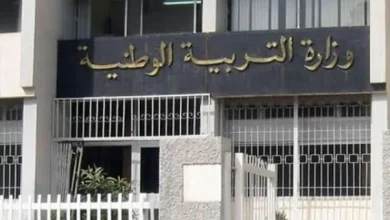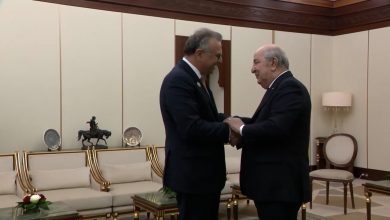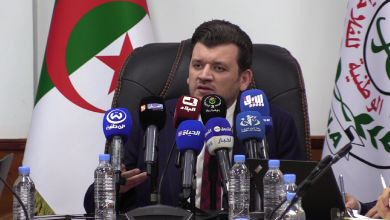The conflict in Sudan has taken a potentially decisive turn with the Rapid Support Forces (RSF) tightening their grip on El Fasher, the capital of North Darfur. Recent reports indicate the RSF have made significant gains, leading to heightened concerns about the future of the country and the already dire humanitarian situation in the Darfur region. This development, following months of escalating violence and strategic maneuvers, raises critical questions about the balance of power, the potential for further fragmentation, and the impact on the civilian population.
El Fasher holds immense strategic and symbolic importance. Historically, it has served as the central hub of governance in Darfur and a critical logistical point for the distribution of aid to the region’s five states. With the RSF’s earlier gains in Khartoum and other key cities, control of El Fasher represents a significant step towards consolidating their dominance over the entire Darfur region. This consolidation could embolden the RSF, potentially leading to the establishment of a parallel government based in Darfur, further dividing Sudan along geographical and political lines.
For months, a fragile peace had been maintained around El Fasher, primarily due to tacit agreements with Darfuri armed groups, who initially adopted a neutral stance. In November 2023, the Joint Force of armed struggle movements declared El Fasher a ‘red line,’ vowing to defend it against any RSF incursion. However, this uneasy truce began to unravel due to several factors. Some Darfuri factions began to align themselves with the Sudanese Armed Forces (SAF), while the Sudan Liberation Movement (led by Minni Arko Minawi) and the Justice and Equality Movement (led by Gibril Ibrahim) launched extensive recruitment drives to bolster the fight against the RSF. These shifts in allegiances heightened tensions and ultimately paved the way for renewed conflict.
The RSF’s capture of Mellit, a strategically important town northeast of El Fasher, in April 2024, significantly altered the dynamics. Mellit’s location provides a vital link to Libya, potentially opening supply routes for the RSF. This raised concerns about the flow of arms and resources, further fueling the conflict and exacerbating the humanitarian crisis. In May 2024, the simmering tensions around El Fasher erupted into open warfare, with both the RSF and SAF accusing each other of initiating the hostilities.
Since then, the RSF has maintained a siege of El Fasher, severely restricting the flow of humanitarian aid and creating a catastrophic food crisis. The city’s approximately 250,000 residents are facing acute shortages of food, water, and medical care. The RSF has relentlessly targeted the city with artillery and drone strikes, hitting residential areas and displacement camps, resulting in the deaths and injuries of hundreds of civilians. The Sudanese army alleges the RSF is employing mercenaries from Colombia, Chad, South Sudan and the Central African Republic.
For more information about Economie, check our dedicated section.
The importance of El Fasher extends beyond its administrative role. It is a vital educational and healthcare center, home to numerous educational institutions, including the University of El Fasher. The city’s healthcare facilities serve the needs of both residents and the displaced population seeking refuge from the conflict. El Fasher’s geographical location further amplifies its strategic significance. It borders Libya and Chad, providing crucial access routes and trade corridors. It also shares borders with seven Sudanese states, acting as a vital link connecting them to the capital, Khartoum, and other key regions. The surrounding areas are known for their agricultural productivity, producing essential crops such as millet, sorghum, and groundnuts, as well as supporting extensive livestock farming. The city serves as a central marketplace for the region and a key transit point for goods moving in and out of Sudan.
The RSF’s control of El Fasher carries significant implications for the future of Sudan. It strengthens their political position and raises fears of the country’s potential fragmentation. By consolidating their control over Darfur, the RSF could solidify their parallel government structure, further deepening the divide and complicating any future peace negotiations. There are also grave concerns about potential ethnic violence following the RSF takeover, similar to what occurred in Zamzam camp and other areas under their control. While the RSF claims to be facilitating the safe passage of civilians and surrendering combatants from the city, reports from those who have fled indicate instances of robbery, sexual assault, and killings perpetrated by RSF soldiers.
According to UN data, over a million people have already fled El Fasher during the ongoing 18-month siege. It is estimated that approximately 250,000 civilians remain trapped within the city, facing immense risks and shortages. The RSF and its allied militias have been accused of committing widespread ethnic violence in Darfur throughout the conflict, and the United States has concluded that these actions constitute genocide. While the RSF leadership denies ordering such attacks and claims that rogue soldiers are responsible for any abuses, the allegations have cast a dark shadow over their actions and further eroded trust. The international community is closely monitoring the situation in El Fasher, urging both sides to exercise restraint, protect civilians, and allow unimpeded humanitarian access. The escalating conflict in El Fasher underscores the urgent need for a comprehensive ceasefire and a renewed commitment to a peaceful resolution to the Sudanese conflict. Without a concerted effort to address the root causes of the conflict and ensure accountability for human rights abuses, the future of Sudan remains uncertain, with the potential for further instability and suffering.



